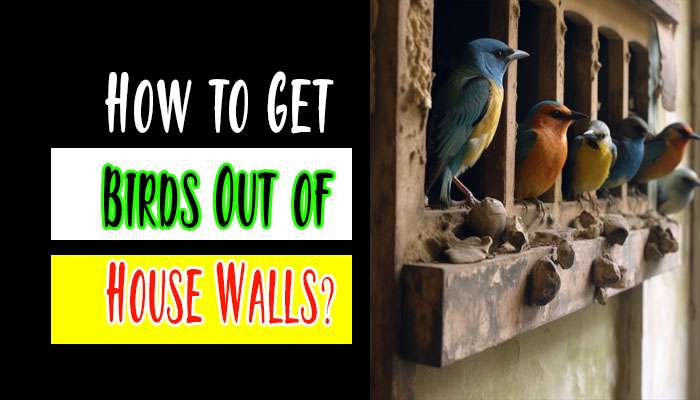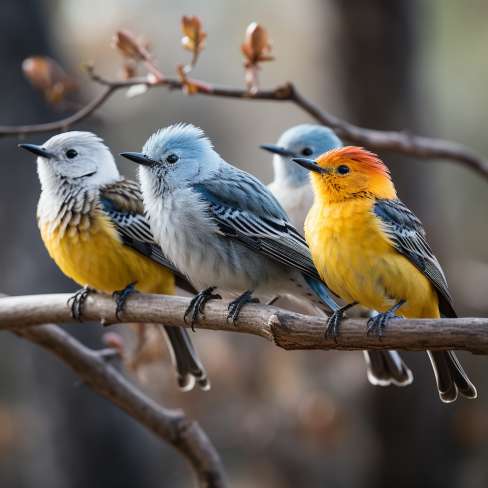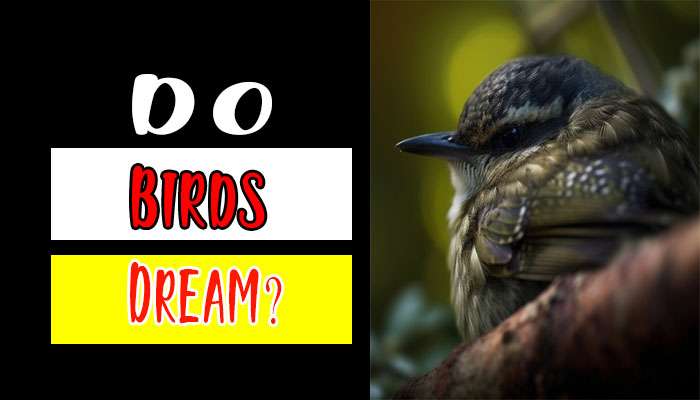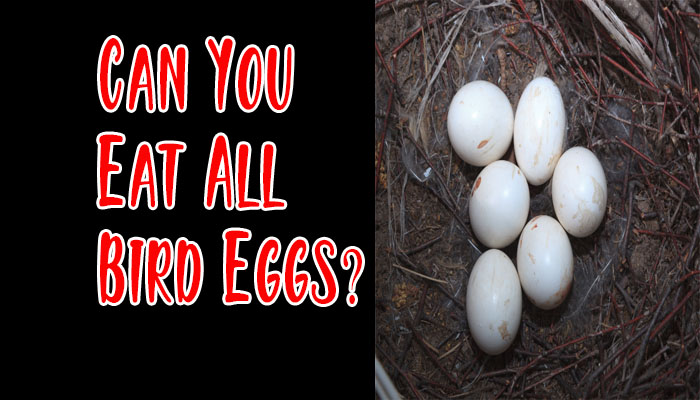Bird Care 101: Keeping Your Feathered Friends Happy and Healthy
Birds are fascinating creatures that bring joy and companionship to many people. Whether you have a pet bird or enjoy watching birds in their natural habitats, it’s important to understand the basics of bird care to ensure their happiness and health. This comprehensive guide will explore various aspects of bird care, from nutrition and habitat to socialization and exercise. So, let’s dive into the world of bird care and discover how to keep our feathered friends happy and healthy.
The Importance of Bird Care

Bird care plays a vital role in maintaining the overall well-being of these beautiful creatures. Like any other pet, birds have specific needs that must be met to ensure their happiness and longevity. By providing proper care, you can create a nurturing environment where your bird can thrive and live a fulfilling life.
Also Read: Bird Photography Tips
From providing a balanced diet to creating a stimulating environment, every aspect of bird care contributes to their overall health and well-being.
Creating the Perfect Bird Habitat
One of the fundamental aspects of bird care is creating an ideal habitat for your feathered friend. A well-designed and stimulating environment keeps the bird entertained and promotes their physical and mental health. Here are some essential factors to consider when setting up a bird habitat:
1. Choosing the Right Cage
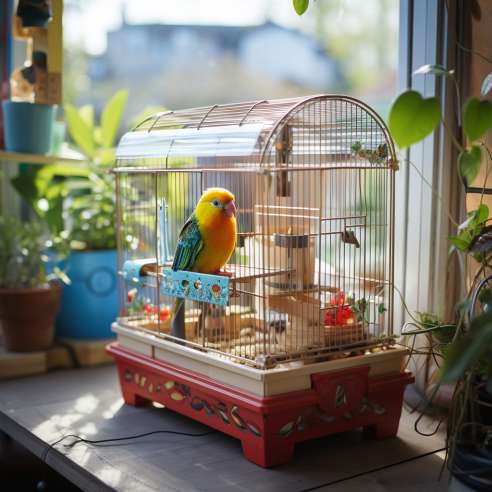
A bird’s cage is its sanctuary, so choosing the right one is crucial. Opt for a cage that provides ample space for your bird to move around and stretch its wings. It should be constructed with bird-safe materials, have sturdy bars, and a secure locking mechanism. Additionally, make sure the cage is easy to clean and maintain.
2. Providing Appropriate Perches
Birds love to perch and observe their surroundings. Include perches of varying sizes and textures in the cage to keep your bird’s feet healthy and exercised. Natural branches or commercially available perches made of safe materials are excellent options to consider.
3. Offering Toys and Enrichment Activities
Stimulating your bird’s mind is essential for their overall well-being. Provide a variety of toys and enrichment activities to keep them mentally engaged. Toys such as puzzles, bells, and mirrors can offer hours of entertainment and prevent boredom.
Nutrition: Fueling Your Bird’s Health
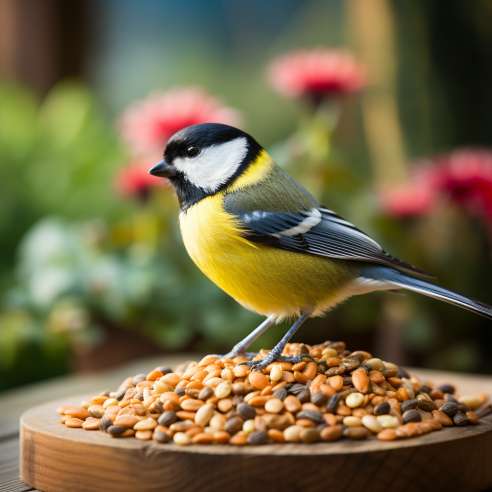
A balanced and nutritious diet is crucial for keeping your feathered friend healthy and happy. Birds have specific dietary requirements that need to be met to ensure their optimal well-being. Let’s take a closer look at what constitutes a healthy bird diet:
1. Quality Bird Feed
Birds require a mix of seeds, pellets, fruits, and vegetables to meet their nutritional needs. High-quality bird feed containing various seeds, grains, and vitamins is readily available in pet stores. Make sure to choose feed appropriate for your bird’s species.
2. Fresh Fruits and Vegetables
In addition to bird feed, fresh fruits and vegetables should be included in your bird’s diet. These provide essential vitamins, minerals, and antioxidants. Some bird-friendly options include apples, carrots, leafy greens, and berries. Ensure the produce is thoroughly washed to remove any pesticides or chemicals.
3. Hydration
Fresh and clean water is essential for your bird’s health. Ensure the water dish is emptied, cleaned, and refilled daily to prevent bacteria and algae growth. Consider using a water dispenser designed specifically for birds to minimize contamination.
Socialization and Exercise
Birds are social creatures that thrive on interaction and mental stimulation. Providing opportunities for socialization and exercise is crucial to their overall well-being. Here are some ways to keep your bird socially engaged and physically active:
1. Spend Quality Time Together
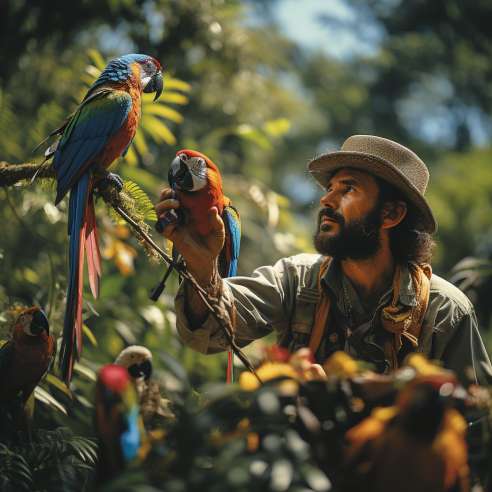
Interact with your bird on a daily basis to develop a strong bond. Talk, sing, or whistle to your bird as they enjoy the sound of human voices. Allow your bird to perch on your shoulder or hand (if it’s safe) to strengthen the bond and provide a sense of security.
2. Arrange Playtime
Create a play area outside the cage where your bird can explore and exercise under your supervision. Provide bird-safe toys, ladders, and swings to keep them entertained. Remember to rotate the toys regularly to prevent boredom.
3. Let Them Fly
Allowing your bird to fly freely in a safe and controlled environment is an excellent way to provide exercise. Ensure all windows and doors are closed and remove any hazardous objects or plants from the area. Supervise the flying session to prevent accidents.
FAQs (Frequently Asked Questions)
How often should I clean my bird’s cage?
It’s important to clean your bird’s cage at least once a week. Remove any droppings, uneaten food, and debris daily. Thoroughly clean and disinfect the cage to maintain a hygienic environment for your bird.
Can birds eat chocolate?
Chocolate is toxic to birds and should be strictly avoided. It contains theobromine, a substance that can be fatal to them. Stick to bird-friendly treats and avoid sharing human food with your bird unless approved by an avian veterinarian.
How do I know if my bird is sick?
Look out for signs such as loss of appetite, changes in droppings, lethargy, abnormal feather plucking, and difficulty breathing. If you notice any concerning symptoms, consult an avian veterinarian immediately.
How much sleep do birds need?
Most birds require around 10 to 12 hours of sleep every night. Ensure your bird has a quiet, dimly lit area to promote healthy sleep patterns.
Should I trim my bird’s wings?
Wing trimming is a personal choice and depends on the circumstances. Trimming the wings can prevent birds from flying into hazardous situations and restricts their natural behavior. Consult with an avian veterinarian to determine the best course of action for your bird.
How can I prevent my bird from getting bored?
To prevent boredom, provide a stimulating environment with plenty of toys, perches, and social interaction. Rotate toys regularly and introduce new ones to keep your bird engaged and entertained.
Conclusion
Proper bird care is essential for keeping our feathered friends happy and healthy. By providing suitable habitats, a balanced diet, socialization, and exercise, we can create an environment where birds can thrive and lead fulfilling lives. Remember to observe your bird’s behavior closely; each bird is unique and may have specific needs. With love, care, and attention, you can build a strong bond with your bird and enjoy the wonderful companionship they bring.
